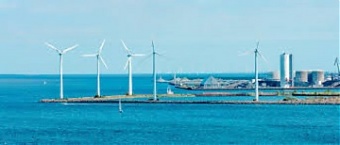Cooperation, EU Regional Policy, EU – Baltic States, Forum, Modern EU, Port, Transport
International Internet Magazine. Baltic States news & analytics
Friday, 19.04.2024, 23:03
Regions as the engine for thriving cooperation around the Baltic Sea
 Print version
Print version |
|---|
The 27th BSSSC Annual Conference in Klaipeda will
tackle several important issues underlined by the EUSBSR. It’s going to be a
vital meeting of representatives from central, local and regional governments,
NGOs, academia, etc. serving as an example of the fact that there are so many
different parts in the Baltic sea region which are destined to become a “single
family’.
Current BSSSC President, Roger Ryberg, underlined on
the eve of the conference that regions are very important in development all
around Europe: they are getting more and more involved in economic development,
democratic transition and youth issues, to name a few. BSSSC is among the first
organisations that take youth challenges very serious.
Regional cooperation is particularly valuable at times, when
the EU’s sub-regional cooperation within the EUSBSR is under revision and when
some of traditional Baltic cooperation frameworks have lost momentum.
There are a lot of networks in the regional cooperation;
however, sometimes the work done is not well coordinated, and the undertakings,
even if very needed and innovative, do not have the expected impact. The
BSSSC’s authorities question the need of so many networks and too many
strategies. Besides, multiplicity doesn’t add anything specific to the EUSBSR.
Roger Ryberg admitted that when he started the chairmanship,
he used almost six months to understand the roles and functions of numerous
cooperative networks in Baltic Sea Region, as there are many organisations with
their goals, structures, etc.
And it is still not quite clear, he added, how many national
regions are taking part in these organizational structures. Without a clear
picture, we cannot reduce bureaucracy and put more money into solving the real
issues.
However, the most important thing is that there are more
good professional people working in this system on the regional side.
Certainly, one of the things that BSSSC mastered and could
export as its best practice to other cooperation networks (not only in the
Baltic Sea Region) is getting a profound youth involvement. Within the BSSSC,
young people from all regions are given the platform to discuss the things the
representatives are talking about, and they are given the opportunities to have
an impact on the discussions, resolutions, etc.
‘Looking into the elections across the regions we see two
trends: that there are those voting for
right-wing parties, generally because they feel not included in the society;
and the other trend, those who see the importance of the green solutions,
screaming out loud about climate change and looking for fast actions. When we
speak to youth, we see that similar discussions happen in every Baltic Sea
country. Besides, young people around Europe want to take part, they propose
solutions, so politicians have to take the youth engagement seriously. This is
why we put quite a lot of money to support the youth initiatives, for example
the Baltic Youth Camp (organized just before the 10th Annual Forum
of EUSBSR in Gdańsk in June 2019).
Modern youth is very active: young people are motivated and full of
potentials for actions; so having youth aboard it very important’, concludes Mr
Ryberg.








 «The Baltic Course» Is Sold and Stays in Business!
«The Baltic Course» Is Sold and Stays in Business!

